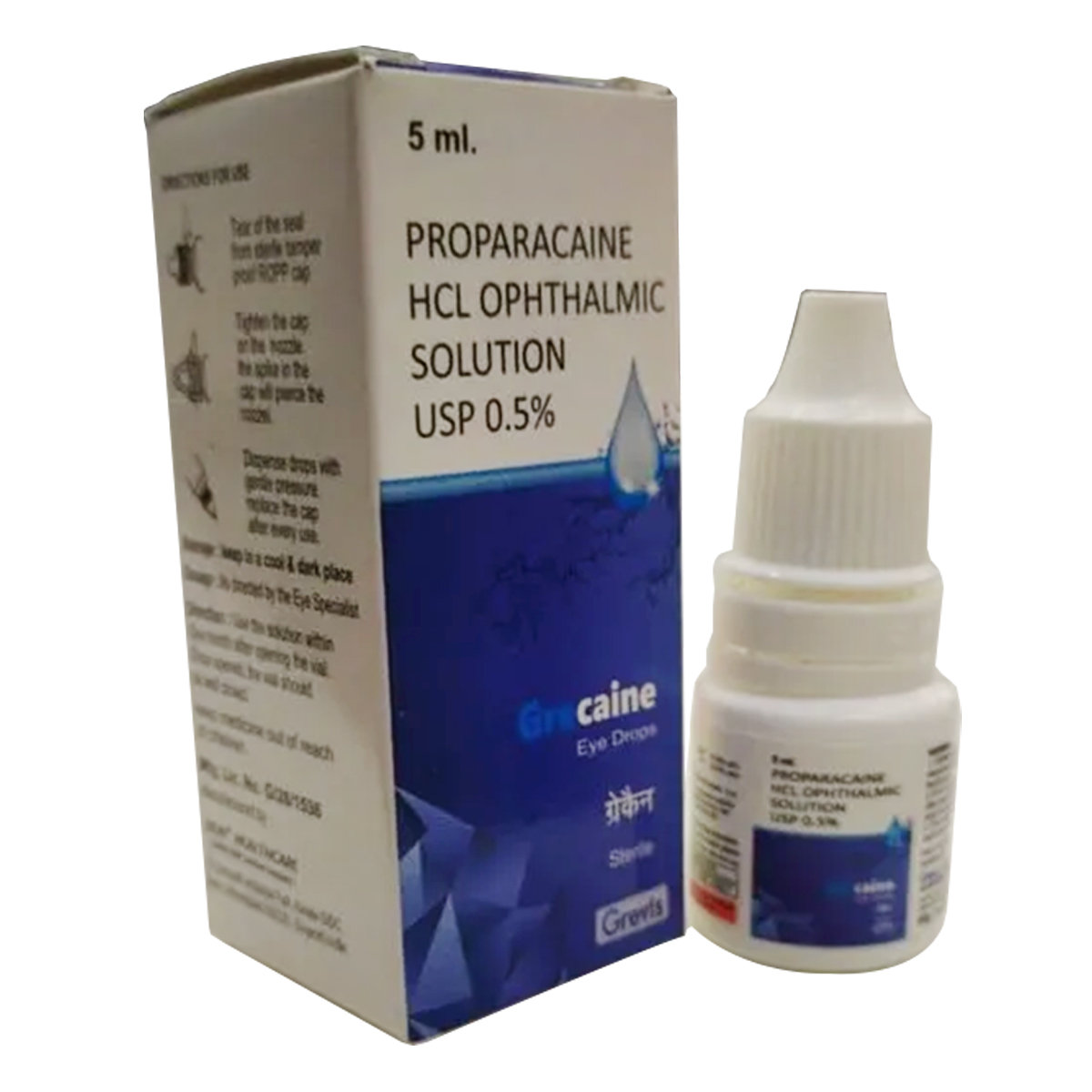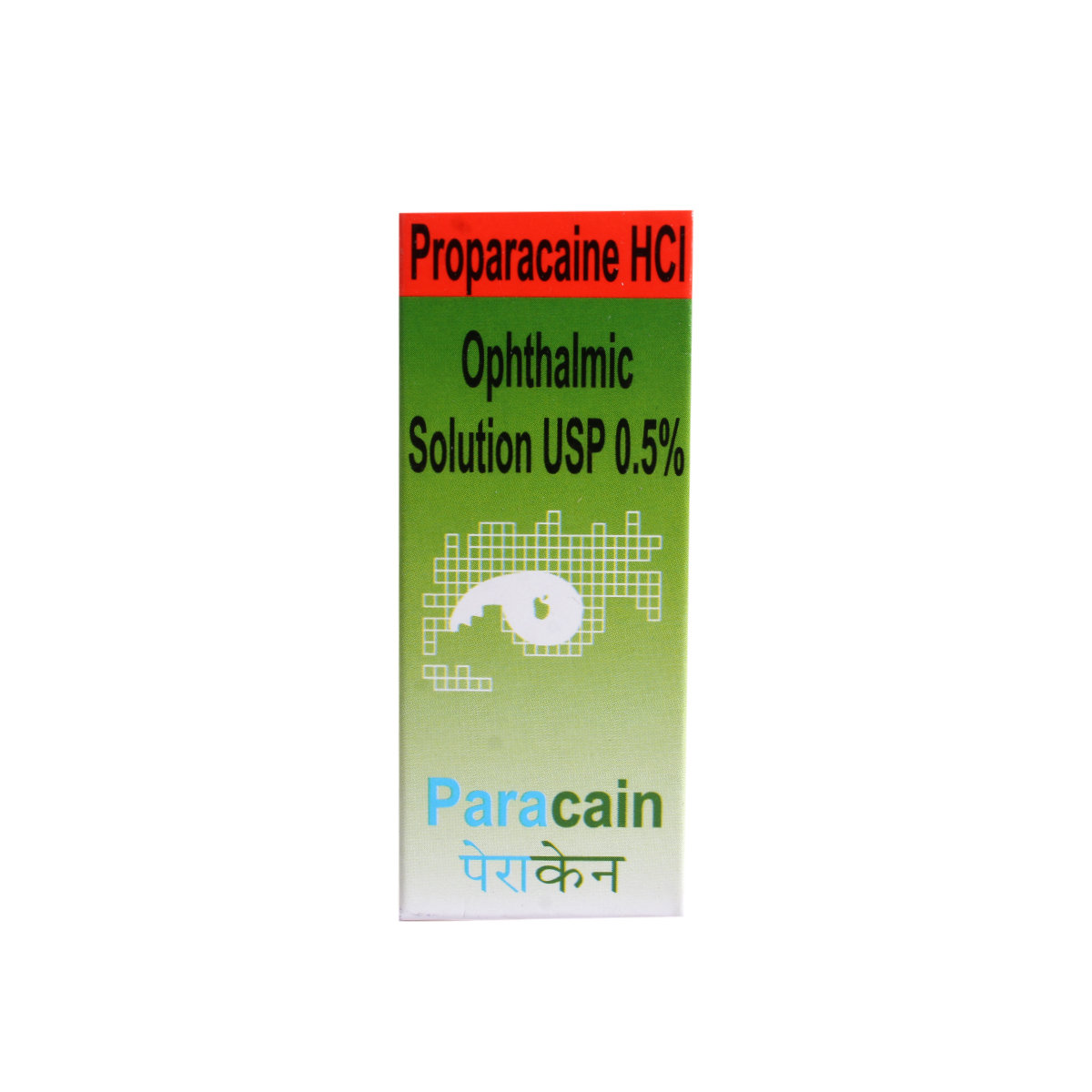Proparacaine Hydrochloride
About Proparacaine Hydrochloride
Proparacaine Hydrochloride belongs to the class of 'ophthalmic anaesthetics', primarily used to numb the eye or eyes before surgery, after injury, and other tests or medical procedures. Ocular anaesthesia numbs the eye/eyes to facilitate pain-free surgery, and rapid recovery, and minimize the risks associated with the surgery.
Proparacaine Hydrochloride contains 'Proparacaine hydrochloride,' a numbing medication that blocks the transmission of pain signals from the nerve endings of the eye to the brain. This blockage causes the loss of pain sensation, thus helping numb the area and relieving pain during a medical procedure. Proparacaine Hydrochloride is a rapidly acting anaesthetic that facilitates numbness within 30 seconds.
Your doctor will decide the dose and duration based on the severity of your pain and response to treatment. Common side effects of Proparacaine Hydrochloride include eye redness, discomfort, watery eyes, and increased winking. These side effects are not familiar to everyone and vary individually. If you notice any side effects that are not manageable, please inform your doctor.
Inform your doctor if you have allergies, heart diseases, or overactive thyroid/hyperthyroidism before starting Proparacaine Hydrochloride. Let your doctor know if you are pregnant, planning pregnancy, or are a breastfeeding mother before using Proparacaine Hydrochloride. These eye drops can cause blurry vision and make your eyes sensitive to light; hence drive or operate machinery only if you are able to see things clearly. It is advised to avoid alcohol while being treated with Proparacaine Hydrochloride. Adequate studies were not performed to confirm the safe use of Proparacaine Hydrochloride in children; please seek medical advice.
Uses of Proparacaine Hydrochloride
Medicinal Benefits
Proparacaine Hydrochloride contains 'Proparacaine hydrochloride,' a local anaesthetic used to relieve pain and discomfort during surgery, after injury, and other medical procedures. It works by blocking the transmission of pain signals from the nerve endings of the eye to the brain. Proparacaine Hydrochloride is useful in ocular procedures like tonometry (measurement of intraocular pressure), gonioscopy (procedure to check for the signs of glaucoma), removal of corneal foreign bodies, for short corneal and conjunctival procedures, and surgical operations like cataract extraction.
Directions for Use
Storage
Side Effects of Proparacaine Hydrochloride
-
Watery eyes
-
Increased winking
-
Eye redness
-
Eye discomfort
Drug Warnings
Brief your medical history to the doctor if you have any allergies, heart diseases, or overactive thyroid/hyperthyroidism before starting Proparacaine Hydrochloride. Please consult your doctor if you are pregnant, planning to conceive or are a breastfeeding mother. Proparacaine Hydrochloride can cause blurry vision and make your eyes sensitive to light; hence drive or operate machinery only if you are able to see things. It is better to avoid alcohol while being treated with Proparacaine Hydrochloride. The safety and efficacy of Proparacaine Hydrochloride are unknown in children; hence please seek medical advice.
Drug Interactions
Drug-Drug Interaction: Proparacaine Hydrochloride may interact with other local anaesthetics (bupivacaine, chloroprocaine, lidocaine), antibiotics (nitrofurantoin), fits medicines (phenytoin, phenobarbital), and angina medicines (nitroglycerin).
Drug-Food Interaction: It is advised to avoid alcohol consumption while being treated with Proparacaine Hydrochloride.
Drug-Disease Interaction: Before using Proparacaine Hydrochloride, let your doctor know if you have any allergies, heart diseases, or overactive thyroid/hyperthyroidism.
Drug-Drug Interactions Checker List:
Safety Advice

Alcohol
cautionNo interaction was found. If you have any concerns, consult your doctor before using Proparacaine Hydrochloride.

Pregnancy
cautionProparacaine Hydrochloride may not be recommended for use in pregnancy. If you are pregnant or planning pregnancy, please consult your doctor before using Proparacaine Hydrochloride.

Breast Feeding
cautionIt is not known if Proparacaine Hydrochloride is excreted into the breast milk. If you are breastfeeding, please consult your doctor before using Proparacaine Hydrochloride.

Driving
cautionProparacaine Hydrochloride can cause blurred vision and make your eyes sensitive to light; hence avoid driving or operating machinery until your vision is clear after using Proparacaine Hydrochloride.

Liver
safe if prescribedNo interaction was established. However, if you have liver problems consult your doctor before using Proparacaine Hydrochloride.

Kidney
safe if prescribedNo interaction was established. However, if you have kidney problems consult your doctor before using Proparacaine Hydrochloride.

Children
cautionAdequate studies were not performed to confirm the safe use of Proparacaine Hydrochloride in children; please seek medical advice.
Habit Forming
Diet & Lifestyle Advise
- Wash your hands regularly. Avoid touching the eyes with dirty hands.
- Avoid rubbing the eyes.
- Avoid sharing eye makeup, such as eyeliner, mascara or kohl.
- Always use clean towels or tissues to wipe your eyes and face.
- Try to maintain good hygiene to keep your eyes clean and irritant-free.
- If you wear contact lenses, clean and replace contact lenses more often. Never share contact lenses. Always remember to wash your hands before using and removing the contact lens.
- Avoid staring at digital screens for longer durations. Rest your eyes every 20 minutes.
Special Advise
Avoid prolonged period usage since Proparacaine hydrochloride may produce permanent corneal opacification (scarring or clouding of the cornea) with accompanying visual loss.
Patients Concern
Disease/Condition Glossary
Ocular anaesthesia: It is the process of numbing the eye/eyes to facilitate pain-free surgery, rapid recovery, and minimising the risks associated with the surgery. Proper anaesthetic management is important for any eye surgery. This can be achieved by options like eye drops, gels, or ointments that contain a local anaesthetic and can be administered directly into the eye for rapid onset of action.
FAQs
Proparacaine Hydrochloride contains 'Proparacaine hydrochloride that temporarily blocks the pain signals from the nerves of the eye to the brain, thereby causing numbness at the affected site and providing relief from pain.
Proparacaine Hydrochloride should be used with caution and only under a doctor's supervision if you have any heart diseases, overactive thyroid, and allergic reactions. Please let your doctor know if you suffer from any medical issues before using Proparacaine Hydrochloride.
Proparacaine Hydrochloride may make your eyes sensitive to light; hence protecting your eyes from bright light is essential. Also, avoid touching your eyes until the numbness of the eye is completely worn off.
Proparacaine Hydrochloride is not recommended for prolonged usage since it may produce permanent corneal opacification (scarring or clouding of the cornea) with accompanying visual loss.






